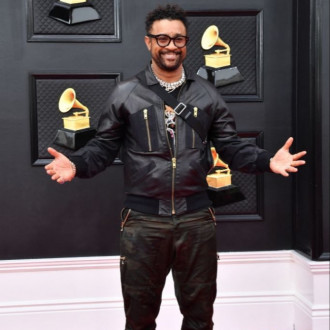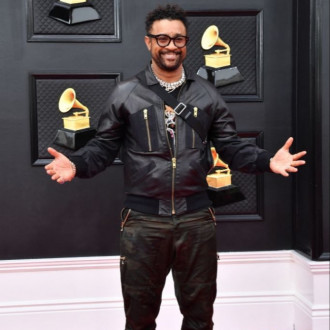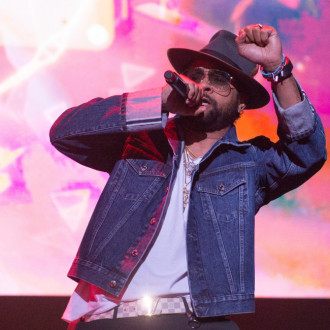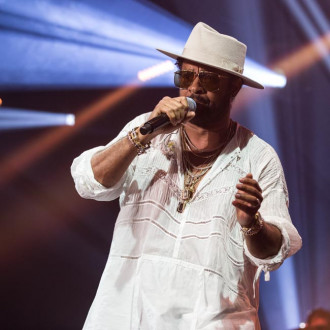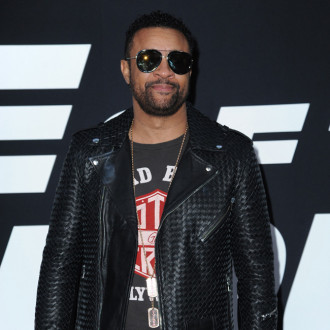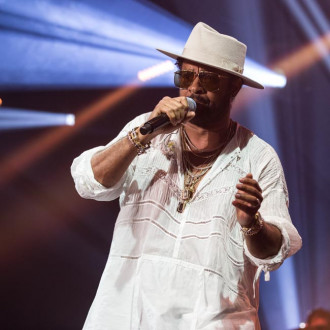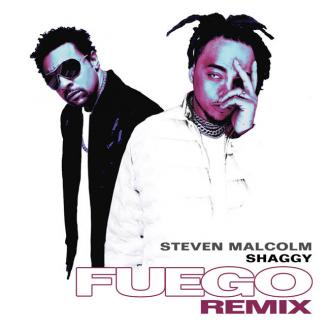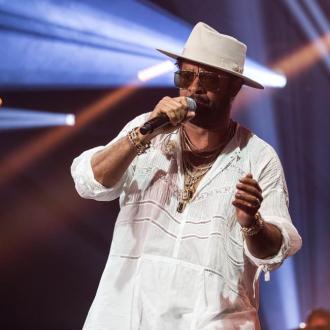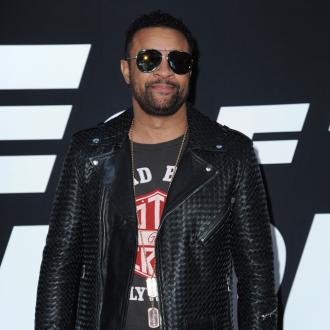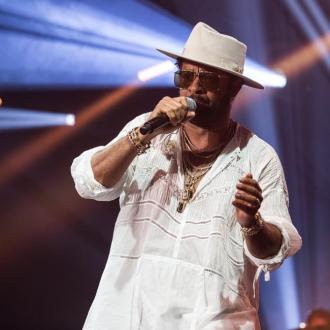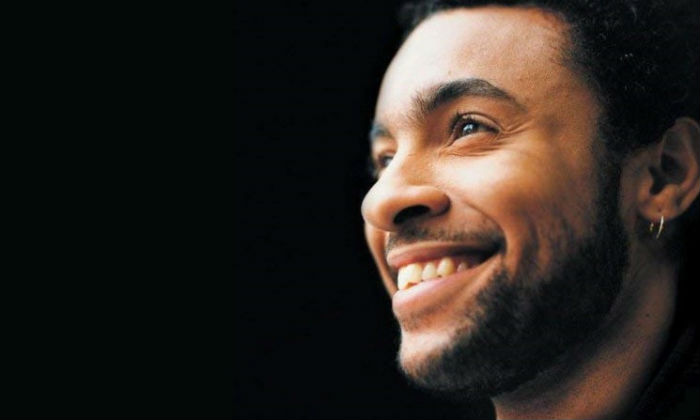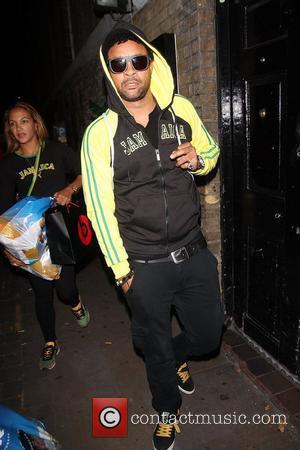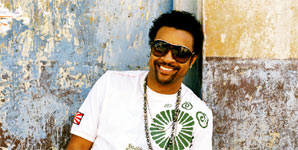
Shaggy, Interview
21 December 2011Interview with Shaggy
The name Orville Burrell might not mean a great deal to most folks. However, as Jamaican-born, New York-based reggae artist Shaggy, he's become something of a global phenomenon, shifting well over 20 million records worldwide.
Having joined the United States Marine Corps at the age of nineteen, it was only after leaving three years later that he decided to pursue a career in music. Debut single 'Oh Carolina', a cover of The Folkes Brothers dancehall reggae standard, may have struggled to reach the Top 50 back home, but here in the UK it stayed at the number one spot for two weeks providing a launchpad for a career that has spanned nearly two decades.
Since then, he's topped the charts in several countries around the world with the likes of 'Boombastic', 'It Wasn't Me', 'Angel' and 'Feel The Rush', while harnessing a reputation as a successful producer of some merit as well as recording artist. This year alone has seen two albums bearing the name Shaggy; the first of which, 'Shaggy & Friends' is shrouded in controversy, consisting entirely of collaborations without obtaining permission from Shaggy himself. Meanwhile this year's "official" release, 'Summer In Kingston', finds itself nominated for a Grammy Award in February 2012 - Shaggy's fifth nomination for such a prestigious accolade.
Later this Shaggy will be headlining a charity event for the Bustamante Children's Hospital in Kingston alongside Ne-Yo, Lauryn Hill and Eve. In the meantime, he's also laying down demos for his next long player as well as producing an album with Sly & Robbie. With such a tight schedule, Contactmusic found it quite an honour to be granted half an hour of Shaggy's valuable time.
2011 has been a very successful year for you in terms of record sales and a Grammy award nomination. What is it that keeps driving you to make music after 20 years in the business?
Shaggy: You've always got to try and reinvent yourself. I came into this game for the love of music because I like to tour. And I've been very very successful.. you know, I've had a lot of sales and recorded a lot of hits. But in this game of reggae music, which is only a small fraternity, there's only a few of us who have broke through and reached a similar level to where I'm at, so I feel a little indebted to this culture that has brought me so much. There's still walls to break down, barriers to cross, you know? As you go along you learn so many different things from your peers and there's so much knowledge that you want to share with the younger cats that are coming up in this game.
It's quite fascinating to hear you say that, as I would say one of the legacies of your career is undoubtedly bringing the dancehall element of reggae to a whole new audience, generation even.
Shaggy: You're seeing ways where the traditional dancehall sound is being taken into the mainstream now. There are a lot of artists now that are not getting a lot of radio airplay but they're making traditional roots music and slowly gaining an audience via word of mouth. A lot of true Jamaican artists don't understand the importance of radio so tend not to tap into that as a result. I see it as my job to educate them on that side of things, and there's still a lot of work that needs to be done.
Two albums worth of material bearing the name Shaggy have been released this year, which by anyone's standards - and especially in the current climate - is quite a prolific feat. You must have spent an awful lot of time writing and recording this past couple of years?
Shaggy: We have our own studios and we continuously make records. If I'm not on tour then I'm sometimes laying down four or five records at a time. Some days I'll knock four records out. I didn't just sit down and write 'Summer In Kingston' from scratch, it came about from a bunch of songs I already had.
How many songs do you have lying around the studio that are yet to be released?
Shaggy: Somewhere in the region of 200. Maybe more. We're actually in the process of putting together a record in the studio now. Not only that, but I'm also working on other people's records as well. I'm working on a Sly & Robbie album now which has about twelve songs completed, so we've another ten, maybe twelve to go. There's also a dance album which I'm doing for Ministry Of Sound which is nearly finished. I've also laid down two more songs for 'Summer In Kingston' which makes it a ten-song album so we can finally put out a physical copy to go with the digital version that came out in the summer. It's a daily dosage of work that goes on.
I don't think many people are aware that you're also an established producer. Whose production style influenced you and what do you feel your input brings to other people's records?
Shaggy: There are a lot of people whose work I admire. I've always loved Sly & Robbie. I think they've been so pivotal in taking reggae overground, and extremely soulful in their approach. Don Corleon as well I think has been responsible for some of the cleanest and most balanced music of his generation. One Drop is another I admire, Stephen Marley also. There are a lot of people I admire, people who've created their own style and stamped their sound on the records they're involved with. Sting International who's worked on many of my records right from the early days like 'Oh Carolina' and 'Boombastic' is another whose work I respect. It goes across the board I guess, and then I'd like to think I have a certain style in the way I produce records. I'm mainly influenced by the vocal arrangements and the choice of melody because I still think that ultimately it's the song that sells the beat. You can't choose a beat all by itself and expect everything else to work.
On 'Summer In Kingston' you've collaborated with Pitbull on the album's lead single 'Fired Up (Fu*k The Recession)', arguably your most politicised statement to date. How did that collaboration come about and what part - if any - did Pitbull play in the writing process?
Shaggy: The song itself was initially written solely by me. I played it to Pitbull and he thought it was great. We were both in Miami at the time; he was living around the corner from me so we dropped the song together but then again, he's signed to Sony so getting clearance proved to be a bit of a headache. He was trying to get the record cleared, I was trying to get the record cleared and it was a bit of a nightmare at first. Plus, things were just starting to happen for him at that time so the last thing he needed was to get caught in all of that.
'Summer In Kingston' initially came out as a digital download only. How significant do you see downloading as being to the music industry, and what impact has it had on your sales as an artist?
Shaggy: The great thing about download culture is that there are no boundaries. With 'Summer In Kingston', everything got targeted towards the American market. I hadn't released anything in the States for about six years or promoted anything on a major label, so I needed to reintroduce myself to the nine million people that bought 'Hot Shot'. The best way to do it was to put out an album that was really cheap to buy, and the only way to make it as cheap as $2.99 was to make it viral. You're not going to download eight songs and never play it. If you like it then you're a Shaggy fan and that's one way to reintroduce yourself. Now that we're up for the Grammy award we've added two more songs and will be releasing it physically with a normal price.
Just touching briefly on 'Shaggy & Friends', the album that was released in January consisting entirely of collaborations. How did these come bout and how far back do some of them date?
Shaggy: I had nothing to do with that album so I'd rather not talk about it. It was compiled by my former manager. That whole album was compiled without my authorisation. We're going through the legal process with that record.
In two weeks time you'll be hosting the Shaggy & Friends benefit concert for the Bustamante Hospital in Kingston. You've supported the charity for over a decade now. How did you first become involved?
Shaggy: I went there because Tony Kelly's son was sick. Tony's a producer and a really good friend, and while I was at the hospital I spoke to a lot of the staff there and realised how much time and effort they put into their jobs, and made the decision there and then that if I was in a position to help in any way I would. 'Hot Shot' kind of came around at the same time so it gave the opportunity to go ahead and just do that, and the rest is history. We've had people like Macy Gray and Boyz II Men get involved, and this year Lauryn Hill is on board along with Eve. It's great that so many other artists want to be a part of something that's become so successful.
You were also instrumental in forming the "Make A Difference Foundation" three years ago, which raises awareness for children's illnesses and medical needs.
Shaggy: And that's the whole purpose for the Shaggy & Friends concert, to raise awareness for the plight of children and their medical needs. If we can spread the word throughout the rest of the world about what's happening in Jamaica then we've achieved something. Raising this kind of awareness on a global scale takes time.
The one facet that's helped retain an audience, certainly in the UK, is your ability to constantly reinvent yourself. Has this been an organic process or is it something you try to consciously orchestrate every so often?
Shaggy: The only way to survive in this game is by having ideas. I sit down and look for new ways of making music. Some of them work and some of them don't, but I'm always trying to push the envelope further. I couldn't make a conscious effort to go totally left field, but at the same time I don't want to keep on churning out twenty years worth of 'Oh Carolina' or 'Boombastic' repeats either. It all comes down to what you can achieve and how you go about achieving it. When I'm in the studio my mind's always running about how we can speed a track up or slow it down to another level.
Looking back over your career, are there any records which you'd change? Sales wise the majority of them have sold well but critically; and I guess 2005's 'Clothes Drop' would be an obvious point of reference; they haven't always been that well received.
Shaggy: I remember when 'Oh Carolina' came out in 1993 it was the biggest record at that time. Because it was a cover - and even then both the beat and melody were totally different to the original, which isn't taking anything away from that version - I was dubbed as a one-hit wonder. People were saying I'd disappear and never do anything again, which was so harsh, particularly the British media. So I was now faced with having to record and release a song that was bigger than 'Oh Carolina', and one that I wrote 100% myself. And it was painful because all the time I was thinking, "How do you top 'Oh Carolina'?" It had been a massive hit, and for a young cat like I was at the time that didn't know shit about how the music industry worked, it was a daunting prospect. I had to rise above all this negative press, and I just went away to my studio in New York and started writing this song that was initially meant to be part of a duo. The outcome of that was 'Boombastic', which not only went on to be bigger than 'Oh Carolina' but was also something I wrote 100% myself. So then having proved that I could do this again for myself the media ended up calling me a two-hit wonder!
Recognition from the Grammys must tell you that the majority of critics are on board with what you're about and have been for some time, surely?
Shaggy: I remember reading an article when 'Boombastic' came out that said, "This 'Boombastic' crap isn't worth the plastic," soon after it made number one and I found myself sitting opposite the critic that wrote that and he sat there saying, "Oh! The first time I heard that record I found it so brilliant!" and I just sat there laughing. I never let him know that I knew it was his article, because at the time I was quite hurt by it, and when I look back now, he was the guy that made me stop paying attention to anything anyone else said. That guy was such a learning process for me; he didn't even know what he did. He made me such a better artist from that point on, and now nothing anybody writes matters any more to me.
You have to roll with the punches, man. I'm the guy they dropped from Virgin Records so they could sign Beenie Man because he was supposed to be the hottest thing around, then Beenie Men went onto sell a few records and I went to another label and sold over a million records on my own with 'Luv Me, Luv Me'. And after that, I went on to sell 20 million records with 'Hot Shot'. I believe some people on Virgin may have since got fired.
The last twenty years must seem like a surreal fantasy in many ways. When you first left the US Marines, did you envisage sitting here two decades later talking about Grammy awards, multiple million selling albums and ultimately becoming one of the biggest recording artists in the world?
Shaggy: No, of course not. I mean, I'm just a little guy from Jamaica that was doing reggae out of Flatbush. I can't say I'd foreseen it because there was no one else before me who had done it apart from Bob Marley, and even he never got the level of chart success that I have. It's one of those things that just happened and I've got to be thankful for being blessed with it.
Finally, when will UK audiences get another opportunity to see Shaggy live in the flesh?
Shaggy: I'd love to come back to the UK. We did the "One Love" concert over there last year and the audience only got to see fifteen minutes of me. Although, saying that, those fifteen minutes were pretty special! This was at the end of the evening when people had been on their feet the whole day, and I had that crowd moving the whole time I was on stage. People ended up missing their trains to watch my set, but at the same time a lot of people who'd come specifically to see me ended up missing the show. I'd love to play somewhere like Brixton Academy the next time I come over, and I'm looking for the right promoter to make it happen because I don't want to do a half-arsed gig.
Dom Gourlay
Official Site - http://www.shaggyonline.com
Contactmusic
Top 10 Videos
Wallace Chung
XXX
1
10 Years
Beautiful
2
Fast Girls
Fast Girls
3
Shaggy
Hey Sexy Lady
4
Air
Sexy Boy
5
The Staves
Tired As F***
6
Robin Thicke
Blurred Lines (Unrated Version)
7
All That Remains
Six (Live)
8
Fugees
Boof Baf
9
Fleur East
Sax [Live]
10
